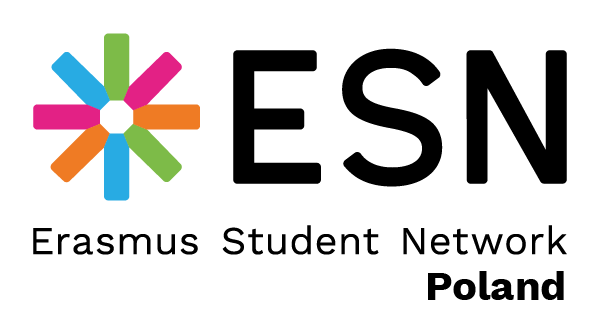
Erasmus+ is a program that allows you to participate in international exchanges financed by the European Union. Few people know that Erasmus+ applies not only to stays abroad for university students, but also includes trips for academic staff, training and courses for teachers, or internships for students from technical and vocational schools. Student mobility is supervised by the National Agency of the Erasmus+ program, which in Poland is the Foundation for the Development of the Education System (FRSE).
The most common form of mobility among students is going abroad for studies, but it should not be forgotten that Erasmus+ can also mean internships.
The most important information
1. In order to go abroad, you must be an active bachelor, master or PHD student, and you cannot be on dean's leave.
2. Recruitment takes place through the university
The university, or rather the International Relations Office (the name may vary depending on the university) that is responsible for the recruitment process for both studies and internships. This is due to the recognition of subjects and internships by university, that are reflected in ECTS credits and student’s achievement during studies. The home university, the one we attend daily, is the sending university, and therefore co-responsible for the results of education abroad.
3. Departure/mobility capital
It means that each student has a period of 12 months available to go to studies and internships during one study cycle, that he/she can split into parts. For example, in the 1st cycle of studies, you can spend 10 months studying at a foreign university, which means that you still have 2 more months of mobility capital to use. As a result you can go for 2 months of internship. Another possibility is that you can go on an internship every holiday, using each time 2-3 months of the capital. A student may go abroad as many times as wishes, meeting other requirements set by the National Agency and the university, not exceeding the mobility capital. When continuing further studies, e.g. a Master's degree, the student is again entitled to have a new 12 months of mobility capital to use. The exception is long-cycle studies (full 5 or 6 years), for which the departure capital is 24 months in total.
4. Where can you go?
You can travel to 27 countries of the European Union, to the countries of the European Economic Area: Iceland, Liechtenstein, Norway, and to North Macedonia, Serbia and Turkey.
5. What are the recruitment deadlines?
Each university sets its own dates and schedules for recruitment both for studies and internships. If you are interested in recruiting, it is best to look for such information on university websites or by applying directly to the International Relations Office (the name may differ depending on the university).
6. Scholarship
The biggest advantage of the program is the funding that the student receives from the sending university. The grant rates are divided into 3 groups, which include the respective host countries. The rates depend on the cost of living in a given country - in this way we will get higher funding for "more expensive" countries, and lower for "cheaper" countries. Funding for internships is 100€ higher than funding for studies.
The grant is paid in two or three installments - in the case of a mobility for one semester or internship, the student receives most of the scholarship before departure (80% or 90%), and after returning and settling all formalities, the remaining amount is transferred (missing 20% or 10%). If you go to study for the whole year, the scholarship is divided into 3 installments: in most cases, the student receives 40% of the scholarship before the first semester of study, 40% before the second, and 20% of the grant is transferred after settling the documents and other formalities.
Scholarship rates may change from time to time - it depends on the money used for the Erasmus+ program, which the National Agency has at its disposal. Current scholarship rates can be checked at the University's International Relations Office. In addition, each university individually determines the terms of financing and accounting for the stays abroad, hence the percentage discrepancies in the scholarship installments.
Useful links
-
mainly the websites of university International Relations Offices (the name may vary depending on the university), where detailed rules for Erasmus+ stays abroad from specific universities and the recruitment schedule are described,
-
Guide to the Erasmus+ program available in many languages on the website of the European Commission (we, as students, are interested in Action 1. Learning Mobility of Individuals and Mobility projects for higher education students and staff),
-
A guide for students (in Polish) on Erasmus+ studies and internships, prepared by the Foundation for the Development of the Education System,
-
Webinars (in Polish):
-
Facebook group Students’ experiences within Erasmus+ (Studenckie wyjazdy z Erasmus+), where students advise each other about universities and courses, and thus support each other before, during and after their stay abroad,
-
Blog Erasmus (in Polish), which gathers articles from former exchange participants who talk about their experiences abroad in the form of blog entries.
